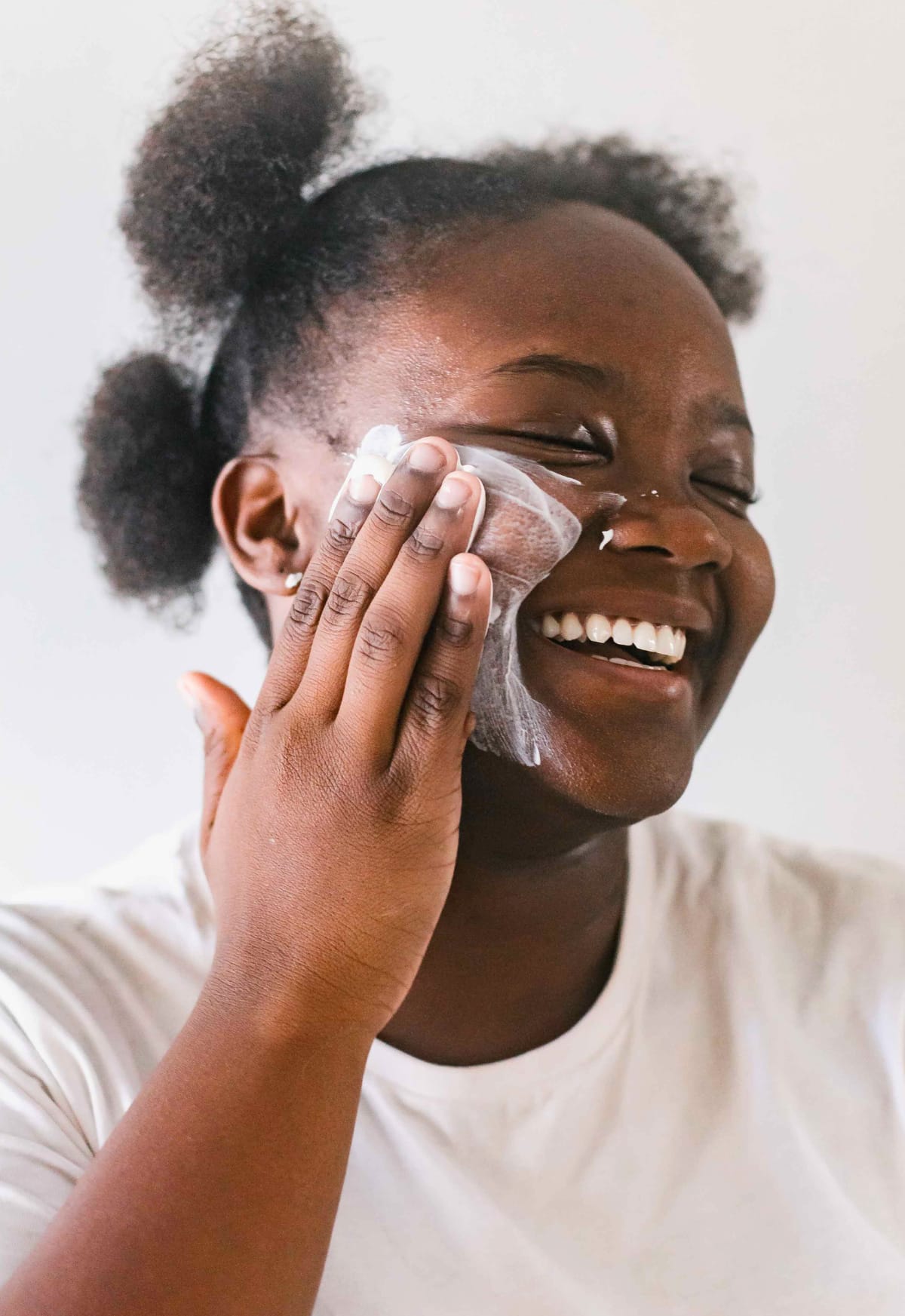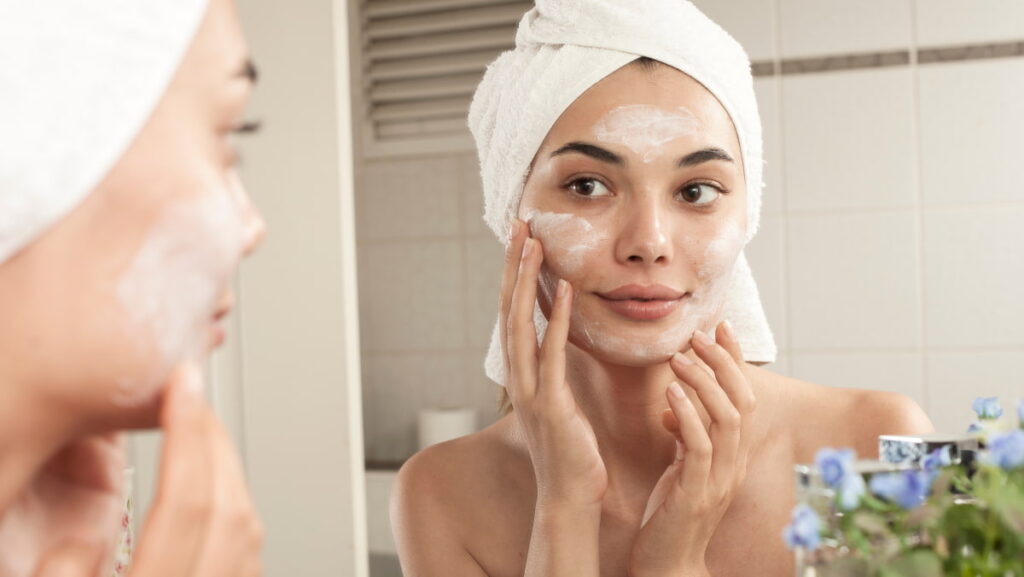
You know that plain ol’ zinc you might find in your vitamin stash? Well, it’s way cooler than you think. Zinc isn’t just about keeping you healthy and healing wounds. So, what’s the deal with zinc? It’s a metal that’s kind of bluish-white, and it’s totally awesome for lots of stuff!
You might have seen zinc in creams or as a supplement, but have you ever wondered, “Is zinc good for your skin?” or maybe “What does zinc do for the skin?” Well, this hardworking mineral is super important for keeping your skin healthy and can totally change your skincare routine.
From protecting your skin from the sun’s rays to battling pesky acne to helping wounds heal faster – zinc is like a superhero for your skin. In the world of taking care of your skin, it’s time to give zinc the credit it deserves. So, let’s jump into all the awesome ways zinc can make your skin look and feel amazing!
What Does Zinc Do For The Skin: The Role Of Zinc In Skin Health
So, what does zinc do for skin? Well, let me explain that it’s more than just a mineral in your daily vitamins. Zinc is considered a vital component in maintaining skin health, and here’s why.
Zinc, found in every cell of your body, contributes tremendously to your skin’s well-being. First, it is an antioxidant, combatting harmful free radicals contributing to premature aging and skin damage. Studies have shown that individuals with lower levels of Zinc often endure skin conditions such as acne and rosacea.
While it is often overlooked, Zinc also plays a pivotal role in wound healing. It aids cell division and growth, enabling rapid recovery from any skin damage. It’s an essential co-factor for numerous tissue growth and repair enzymes.
On top of a healthy diet, topical application of Zinc has proven benefits. According to research[1], topical zinc treatments can assist in reducing inflammation, healing wounds, and improving acne symptoms.
So, to answer your question, is zinc good for skin? Yes, zinc does help the skin in several ways. There are actually lots of zinc benefits for skin – which we’re going to talk about in a bit.

Benefits Of Zinc For The Skin
Zinc is a vital mineral for maintaining healthy skin and proper skin function. It can be naturally found in various foods such as shellfish, red meat, poultry, beans, nuts, whole grains, and dairy products. For those who may have difficulty obtaining enough zinc from their diet, it is also available in supplemental and topical forms.
Let’s delve into the incredible benefits of zinc for the skin, supported by scientific research.
How Zinc Contributes to Skin Hydration
Zinc acts as a protective shield for the skin’s barrier, essential for retaining moisture and preventing dryness and irritation. Studies have shown that a healthy barrier supported by zinc helps maintain smooth, supple, and hydrated skin[2].
Inadequate levels of zinc can weaken the skin barrier, leading to loss of hydration and increased vulnerability to environmental damage[2].
Healing Properties of Zinc for Your Skin
Zinc exhibits anti-inflammatory properties, effectively reducing redness and irritation associated with various skin conditions, including rosacea and acne. Scientific research has validated zinc’s ability to ease inflammation and curb the growth of bacteria that can cause acne breakouts[2].
Moreover, studies have demonstrated that zinc accelerates the renewal of skin cells, promoting faster wound healing[3].
Zinc’s Connection to Anti-Aging and Wrinkles
Zinc plays a crucial role in maintaining skin health by contributing to cell production and turnover, which helps in preventing wrinkles and promoting a more youthful appearance. The use of zinc oxide, a form of zinc, in skin creams and sunscreens has been supported by research for its ability to act as a physical sunblock and protect against harmful UV rays[3].
Additionally, zinc acts as an antioxidant, countering oxidative stress, which is a leading cause of aging. Scientific evidence suggests that adequate zinc levels can help skin cells better resist age-related changes[1].
How To Use Zinc
- Choose the Right Form: Zinc is available in various forms, like zinc oxide creams, supplements, or skincare products. Pick the one that best suits your skincare needs.
- Cleanse Your Face: Start with a gentle cleanser and warm water to remove dirt, oil, and makeup, creating a clean canvas for the Zinc application.
- Spot Treatment: For blemishes, acne spots, or inflammation, apply a small amount of zinc cream directly and gently massage it into the skin.
- Use Zinc-Containing Skincare: Follow product instructions for serums, moisturizers, or sunscreens containing Zinc. Apply a small amount and gently massage it into your skin.
- Let it Absorb: Allow the Zinc cream or products to absorb for a few minutes, avoiding excessive touching.
- Protect with Sunscreen: If using zinc oxide sunscreen, apply generously to shield your skin from harmful UV rays.
- Continue Your Routine: Proceed with your regular skincare routine, including moisturizers and eye creams.
- Personalize Frequency: Adjust Zinc use to your needs. Some may use it daily, while others prefer spot treatments or less frequent applications. Listen to your skin and find what works best for you.

Best Skincare Products With Zinc
- Paula’s Choice Resist Super-Light Daily Wrinkle Defense SPF 30: This sunscreen lotion is super light and helps protect your skin from wrinkles and sunburns. It’s perfect for everyday use!
- Sunday Riley U.F.O. Ultra-Clarifying Face Oil: This face oil helps to clear up your skin and keep it looking fresh and healthy. It’s great for people with oily or acne-prone skin.
- Glossier Super Pure Niacinamide + Zinc Serum: This serum is super pure and helps to reduce redness and blemishes on your skin. It’s perfect for people with sensitive or acne-prone skin.
- The Ordinary Niacinamide 10% + Zinc 1% Serum: This serum is packed with niacinamide and zinc to help reduce the appearance of blemishes and improve your skin’s texture. It’s great for people with oily or combination skin.
- Sephora Collection Clarifying Toner With Niacinamide And Zinc: This toner helps to clarify your skin and reduce the appearance of blemishes. It’s perfect for people with acne-prone skin.
- COSRX AC Collection Lightweight Soothing Moisturizer: This moisturizer is super lightweight and helps to soothe and hydrate your skin. It’s perfect for people with sensitive or acne-prone skin.
Potential Side Effects Of Zinc
When using zinc on the face, there are some potential side effects to consider. These include skin irritation, redness, itching, burning sensations, and dryness. Some people may also experience an allergic reaction to zinc, manifesting as a rash or hives.
Also, if left on for too long, it can cause skin discoloration or dark spots. Prolonged use may also lead to clogged pores and acne breakouts. It is important to always perform a patch test before applying zinc to the face to check for any adverse reactions.
If any negative side effects occur after applying zinc to the face, it is recommended that you stop using it immediately and consult with a doctor or dermatologist.
Frequently Asked Questions
shop the post
See all my favorite zinc skincare products here.
